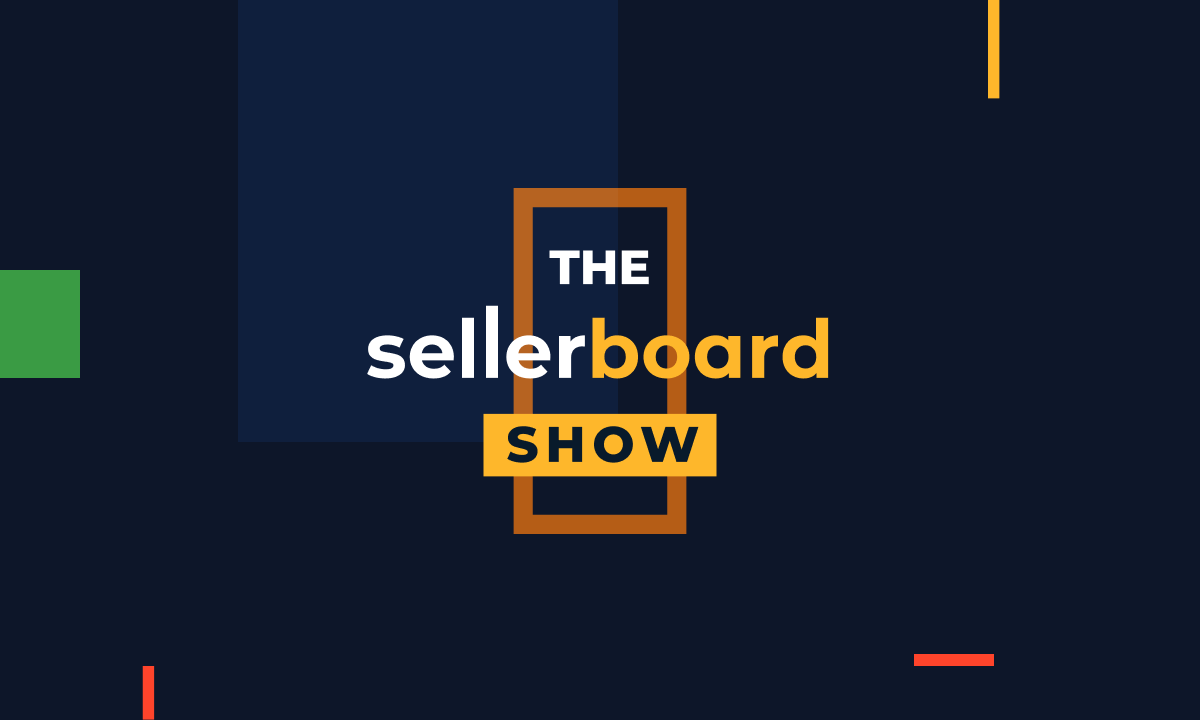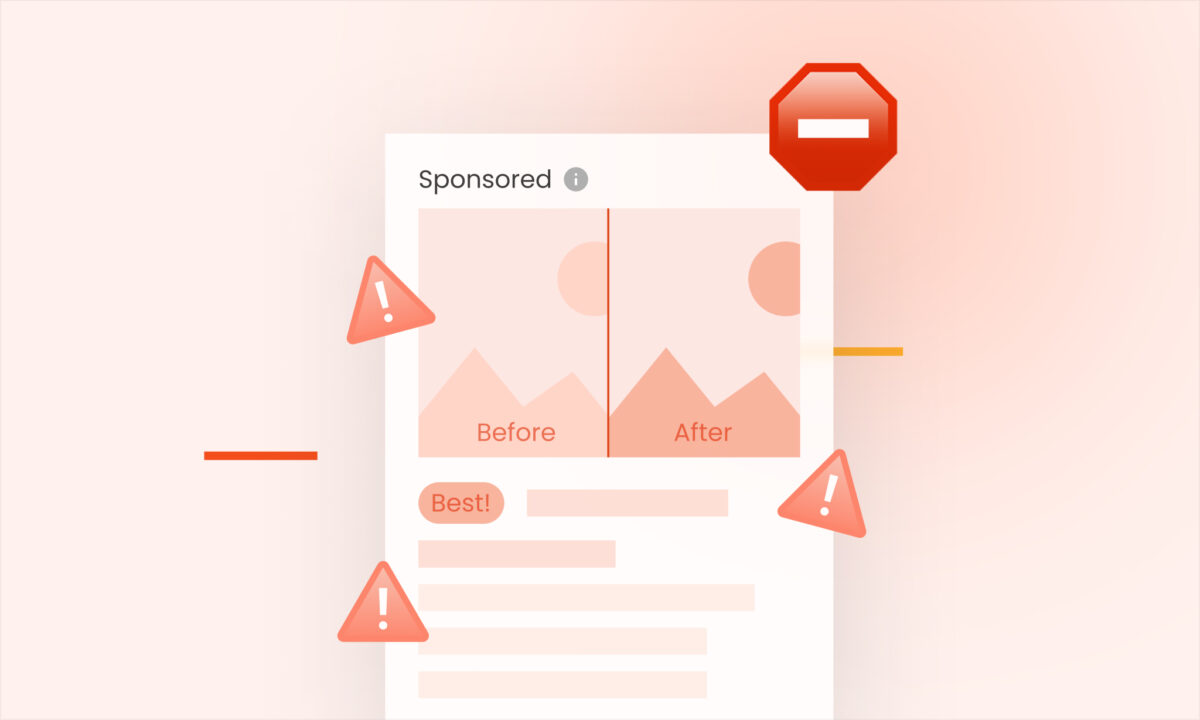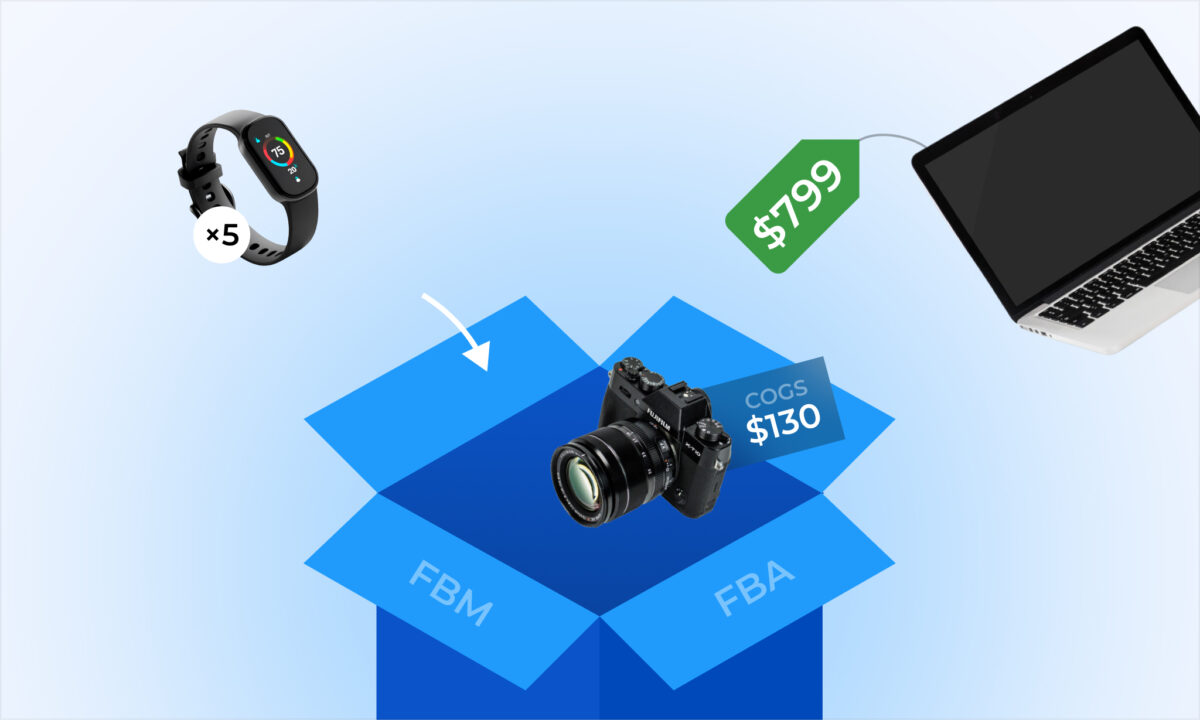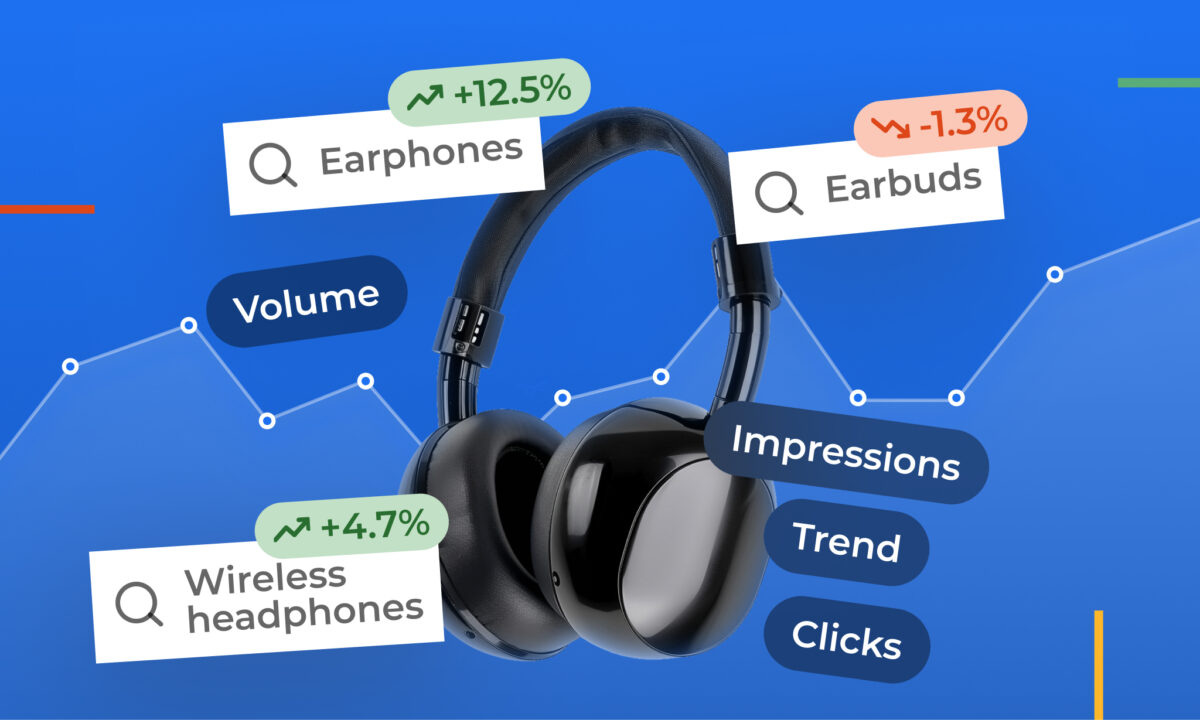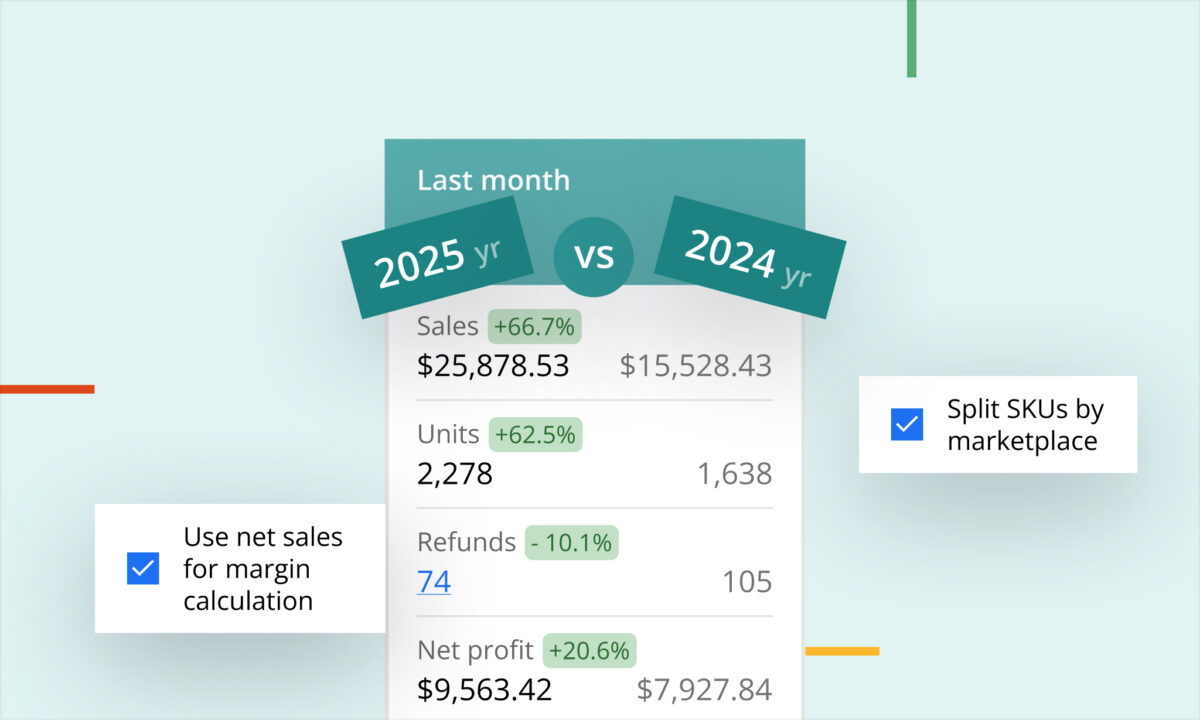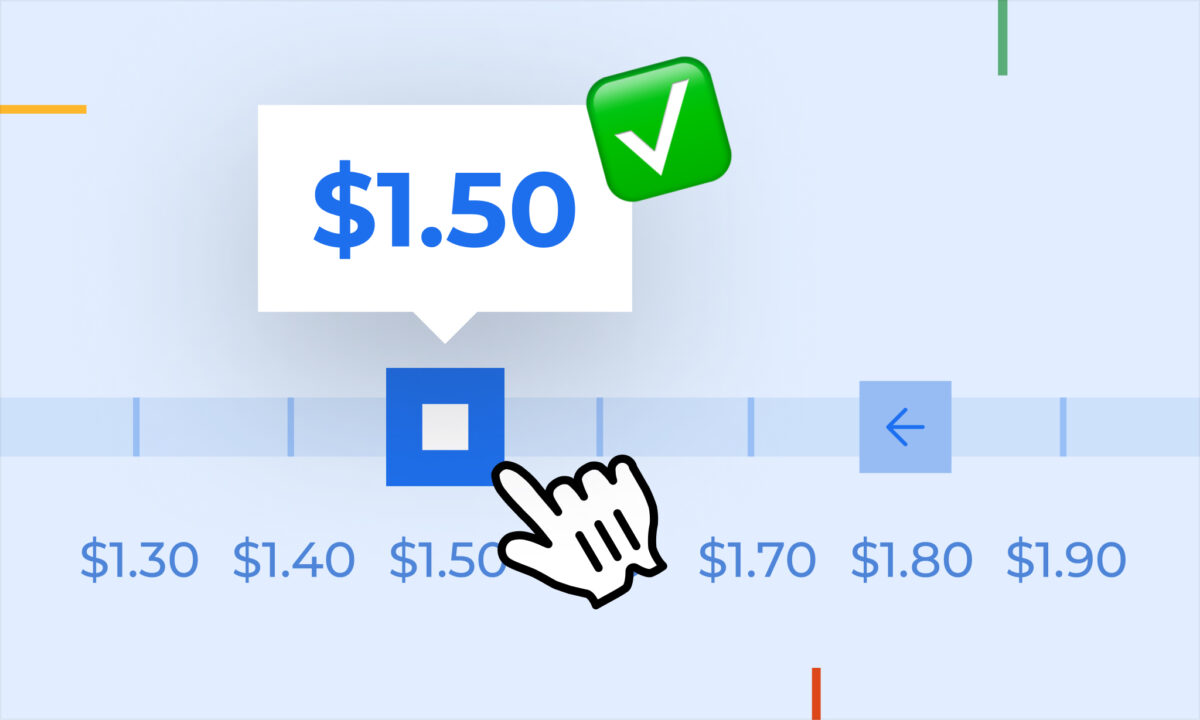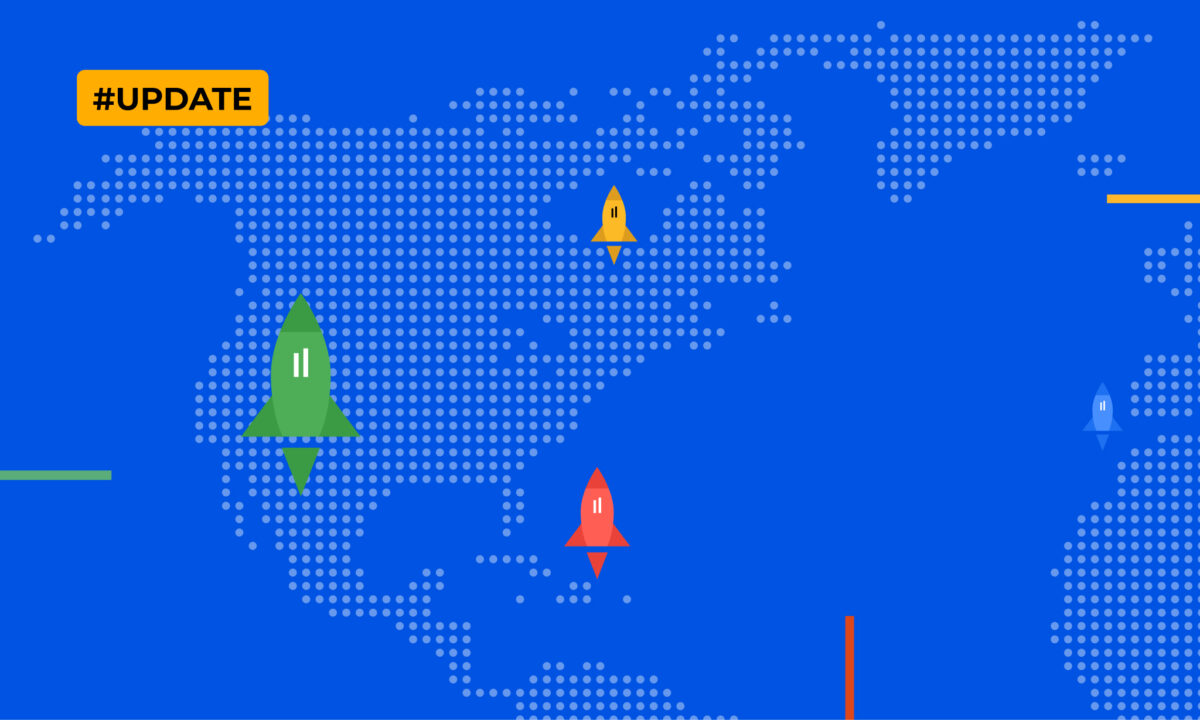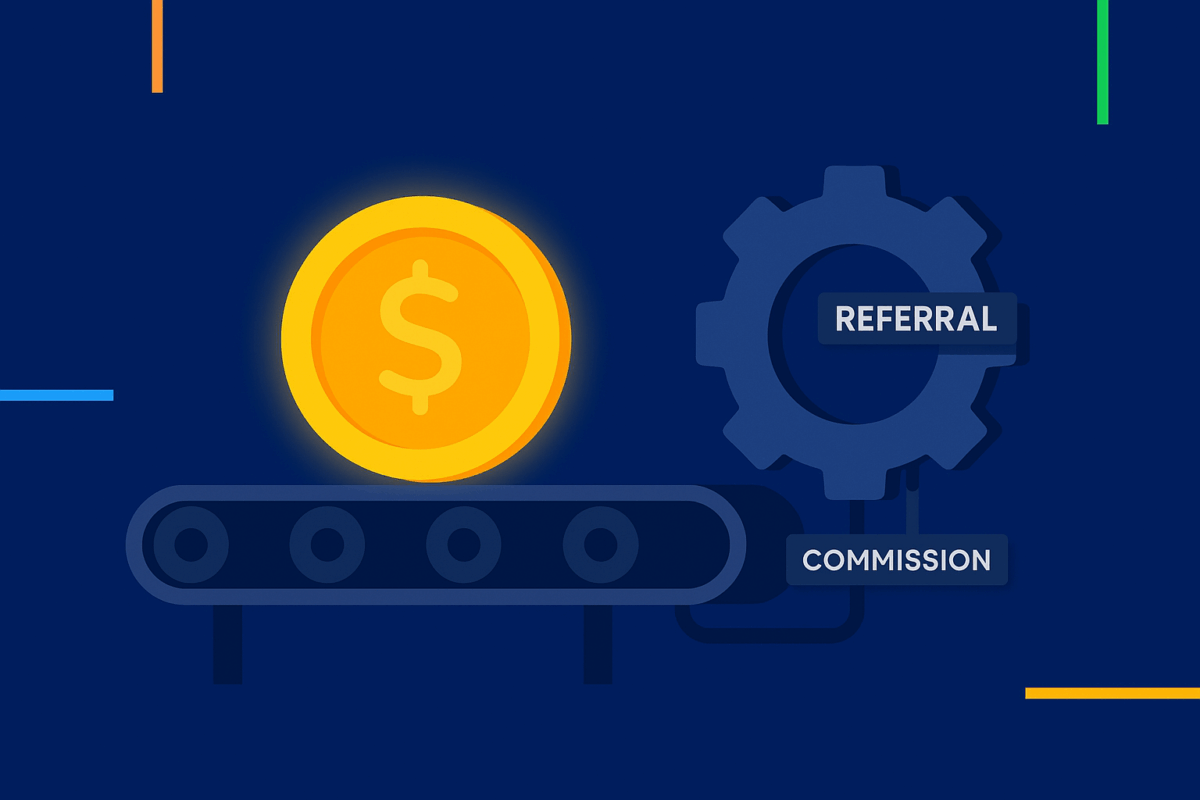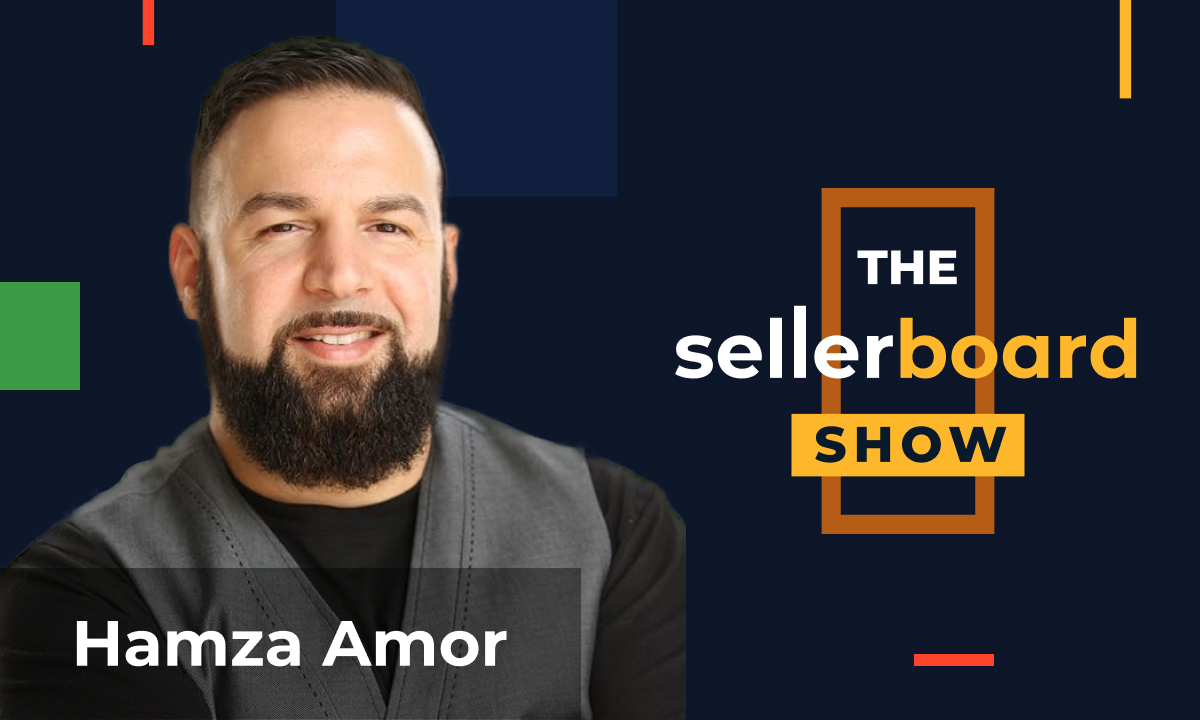Our guest on the 17th of February, 2020, on the sellerboard show was Nate Ginsburg from SellerPlex. We talked about his experience and how he started business on Amazon FBA.
- his process on picking the right product,
- scaling the business,
- hiring the right team,
- getting your processes & keeping finances under control – how you can replicate his success in 2020.
Nate also shared with us how he got into 4 different businesses at the moment and how they are developing after his exit from Amazon FBA.
Watch the full video here: https://www.youtube.com/watch?v=btYh28VDevE
[00:00:07] Hello, everybody, and welcome to The sellerboard Show. My name is Vladi Gordon. I’m your host today. My guest is Nate Ginsburg from SellerPlex.com. So Nate shared a story of how he started an Amazon FBA business and sold it two years later for almost one million dollars. And I think that’s amazing. And I wanted to know how he did it exactly. And how can somebody replicate it today in 2020 in terms of picking the product, scaling the business, hiring the right team, getting your processes under control and also your finances. So stay tuned. This is going to be interesting. And for me, it was very, very motivating. Also, Nate told us what he’s doing now. He got involved four different new businesses after the exit. And that’s also pretty amazing. Please press the like button if you like this content and don’t forget to subscribe to our channel. We’re bringing up those videos regularly. And before we start, a quick word about sellerboard. sellerboard is our profit analytics tool for Amazon sellers. The pricing starts at $19 a month and we have a vision of building the most accurate and powerful profit analytics tool with some other add ons on top. For example, we have a module which finds lost and damaged inventory and helps you open tickets and get refunded for the inventory that Amazon damaged or lost, we have a PPC optimization module and a lot of other tools which we’re constantly developing. So make sure you give us a try. There’s a one month free trial if you follow the link in the description. And now let’s start the show.
[00:02:06] Hi Nate! How are you?
[00:02:09] Doing good, Vladi. How are you?
[00:02:11]Doing great too, thanks. So you’re somewhere in Asia based on the light?
[00:02:17] Yeah. Currently in Chiang Mai, Thailand. Actually, I just got back from spending New Years in Saigon, Ho Chi Minh City, Vietnam, where I used to live for a couple of years and got back. Now I’m speaking at an event in a couple days and it’s right in time for burning season, which I’m not sure if you’re familiar in Chiang Mai, but around this time of year, there’s something of like the farmers, something with their crops, I don’t understand all the details, but what happens is they just burn a ton of stuff and the result is terrible smoke and air quality. And like today, today was not a good day for air quality. And I’m looking out. Normally, it’s a nice view. You know, clear mountains and it’s just kind of smog. So not the most pleasant for that. And now, I mean, this is kind of the time of year that it’s kind of a mass exodus from Chiang Mai. So we’ll be here for the event and stick around for briefly after and then we’ll also be making my leave.
[00:03:27] Ok. And tell us, do you have like a home base somewhere?
[00:03:33] Yeah. So I’ve been living mostly abroad since I think 2013. And these last few years it’s kind of been like half the year in Asia and you know, half the year in America, a little bit in Europe. Yeah. I’ve been, like winters, in Asia. And then after your other where
[00:04:02] It seems to be a pretty cool lifestyle and I’m sure a lot of listeners would like to do this as well. So tell us a little bit about yourself and how did you get to where you are?
[00:04:14] Well, first, I’ll say that if I can do it, anyone can do it. So anyone that’s listening here. Yeah. And that’s I think the first thing where I mean, where my story starts and for any listeners out there, wherever they are in their journey, is really deciding and committing to what it is that they want. And so for me, this was, back in 2013, I was twenty-five, wanted to travel, wanted to have a business, wanted freedom and started listening to some podcasts, maybe similar to this, got inspired and basically booked a one way ticket to Asia at the end of 2013. And when I when I moved out to Asia, that’s when things started to come together. Something else that I’ve learned and totally believe is you’re the average of the five people you surround yourself with. And so coming over to Asia, that was when I really started meeting other entrepreneurs that were doing all kinds of different things. That’s how I got introduced to Amazon, was some friends that I was hanging out with in Chiang Mai in Vietnam. They were doing e-commerce. It was going well. And so that’s what got me to them. Got started at Amazon and launched my first product in 2015.
[00:05:43] And was it a private label product?
[00:05:45] Yeah, yeah. Private label. And then the second half of the year was when things really started, like after I launched my second or third product. Things really started to take off. And I remember the second half of that year. SALES were doubling every month and, resulting in our first like six figure month that December. And so this was all very exciting, but also very hectic.
[00:06:15] I was doing most things to myself and, staying up late, trying to call forwarders, stress, running out of stock, maxing out my credit cards for inventory, which again, was I mean, it was exciting. The sales were going up, but it was also stressful. I knew it wasn’t sustainable. And so that’s when I really looked inward in the business and really got our operations and team and finances and all this kind of stuff in order. And I’m also the kind of person that I believe that we all should do what we’re best at and find other people around us to complement and support us in doing roles that they’re better at handling that I don’t want to do or I’m not good at.
And so, yeah, it was a really great team around me that got us on top of our operations, on top of our finance. And the business, was going well, was growing. I was travelling, had a great team. Then unexpectedly, I had an opportunity to sell the business. And so sold out. So I was on a call with my business partner and he mentioned that he maybe had a buyer for our business. Was I interested? I was. And three days later, on a plane to China to meet with this guy was running this massive Amazon operation there who eventually ended up buying our business. And I was really saved or fortunate that I had that great team in place that had our business organized in the way that it needed to be so that I could even entertain the sales conversations. And so stuff that I’ve learned is there are certain things that you need in order to sell. For example, being on top of and having verifiable finances.
[00:08:18] When was it actually. So how long were you into the business when you sold it?
[00:08:22] So that was in 2017.
[00:08:27] OK. So two years later. Yeah. And tell me, do you disclose? Are you talking about the numbers? Any numbers?
[00:08:33] Yeah. I mean we sold for just under a million. And yeah. I mean. Yeah. I guess that’s public information.
[00:08:41] Yeah. OK. Very nice. So. Tell us a little bit more about this. So let’s get back to the moment where it started. So you said it was a private label product. Right. And you started with a partner or just started on your own first?
[00:08:56] So actually started on my own. And then as things were growing in that first year when we really had this big upswing, and then I kind of found myself going into the next year. And, the business was all of a sudden doing six figures a month in sales, which was I mean, a lot. A lot. And but then like, I didn’t really have much money in my bank account.
[00:09:26] And around that same time, also another friend that I had known through the like Southeast Asia on my business scene, who was also one of the co-founders of maybe some of your listeners are familiar. Maybe you’ve heard of AMZ Tracker? It was like one of the first Amazon softwares that was really out there. And he actually exited that business or was in the process of exiting that business when my business was really taking off and we were friends, we’d known each other for a few years at that point and he was looking for new opportunities. He’d known about my business because we were friends. And I mean, he was a mentor to me. And I was just kind of keeping him updated on my business. And then I was thinking of being interested in, getting some cash myself, taking some chips off the table. And my partner Travis was looking for new opportunities. And so, he ended up investing in or buying, minority share in my business, which then we later sold, which was actually the buyer of my business that Travis also was a partner in. It was the same buyer that had bought the software from Travis and actually developed a few businesses from my partner.
[00:11:03] We can talk a lot about product selection and so on, but maybe the main question which is only relevant for our listeners now is this repeatable dish think like you can pick up products and grow with one product or maybe with a couple of products at the same pace now in 2020.
[00:11:24] I mean, anything’s possible. You definitely can. The thing is it’s definitely a different game now. And so if I was getting back into, selling my own products on Amazon now, two things that I think you need for success in 2020 and one of them is going to be a differentiated product. So, gone are the days that you can private label a frickin spatula.
[00:11:55] And get meaningful traction and sales with that. There still is. So I’d say really invest time in research and energy and think outside the box a little bit. Either go outside of China where other people aren’t looking for products or, spend more time in product development and, make just some tweaks to the product. So whatever your selling is, more unique, indefensible. So I think that’s the first thing. And then the other thing is gonna be having a like off Amazon traffic marketing strategy. So this is something also. I mean, I’ve been doing a lot of speaking the last quarter and connecting with a lot of other people and other speakers at events.
[00:12:52] And this is what’s consistently I’m seeing that’s working is building your own mailing list and using that to launch products, get reviews, get traction. And there’s different ways to do that. But yeah, the ones that I’m seeing that are having the most success now. Like that’s a part of their strategy is having off Amazon sales. So so yeah. With a differentiated product and your own list and off Amazon promotion, I think that you definitely can have good success.
[00:13:30] Okay, cool. What about your product? Was it like a brand approach or was it through other like some random product with the label on it? Or did you like try it right from the beginning?
[00:13:41] We had a couple different brands in a few different categories. So I had some glass products of like wine decanters, champagne glasses, that kind of stuff. I sold a bunch of activated charcoal related products. So like different sized bags of powder and kind of packaged differently.
[00:14:05] That was them. Those were the main things that we were selling. And they were under sort of different brands and. But yeah, we didn’t really invest in building the brand. It was more just products. And I don’t know if we made any sales off Amazon.
[00:14:25] Ok, so tell us, like how did you scale? Was it by the number of products or increasing?
[00:14:35] Yes. So for us was I think in general, the way to scale an FBA business is by launching more products. And so that’s what we did. I mentioned building this team to support the business. And, we had for a period, like a product launch machine and finding the product and then all the different steps that would get into the launch. We also had some capital to play with from my business partner because launching product is expensive. I mean, e-commerce is expensive. Launching products is expensive. Growth is expensive. But we had a little bit of a cushion because of my partner who had a lot of money.
[00:15:26] Well, okay. That’s certainly a good thing. Okay. And what about like hiring people and delegating stuff and so on? I was a seller myself, by the way, also around 2015. I started in Germany and I also sold my business, but not so successfully as you. So my problem was at a certain point in time, I kind of also figured allocating more products. And when I had only one, that was like. It was manageable. Right. So you invest like a lot when you’re starting making pictures and optimizing and getting reviews and stuff. But when it’s running, it’s not too much work, right? You just need to reorder. But I was like constantly launching products and I had different products from different niches. And I was like basically managing it the whole time. And I thought, okay, maybe I can hire people, but then my margins go down. Right. So I need to invest this money. So how did you manage this scaling?
[00:16:27] Yeah, I guess in my early in my career, I guess got started to get experience with, hiring outsourced teams. And yeah, that was a skill that I really honed and have become very effective at. And so, I mean, for me, maybe my best skill as an entrepreneur is hiring, finding hiring good quality people also at reasonable prices. And so, I mean, now I’ve got a team of maybe 15 or something with my new business. Most of them, the core of them are in the Philippines. But. Also, got a couple Americans, a couple Europeans and yeah, I mean, that same sort of approach is what I took to grow the business, was getting the right team in place.
[00:17:33] So, OK. So tell us if somebody is targeting exit. Right. Obviously, you meet some maybe researchers and sourcing guys and think that we kind of talked about it a couple of times in the podcast already. But like if you’re heading towards an exit. Like what should you do or how should you basically scale or organize things so that the business is sellable?
[00:18:02] So in order to sell a business, there are two things necessarily that you need in order to sell. And so the first one is operations that aren’t dependent on you to run. And not one with the FBA business model mostly taking care of for you by nature of running FBA. You’re not the one shipping stuff out. So, yeah, FBA business is a very transferable asset. . The second one is you need to have correct and verifiable finances. So that’s going to be bookkeeping, your PNL, depending on the size of your business. You might also need a balance sheet if you want to sell for seven figures. Balance sheet for sure. And so, yeah. This is the stuff that we work with businesses now that want to sell. And sometimes these are ones that like they’re ready to sell asap. And then we start working with them and we have these different reports and audits that we’ll go through and see where they’re at and what they need.
[00:19:13] And, you know, most common is that they’re doing something wrong on the finances side. Something wrong in the bookkeeping. And then my team has to come in and like clean this up retroactively and rebuild their finances, which is fine for us. I have a great team. We’re very good at this work. But it takes time, delays the sale, costs them more money.
[00:19:39] And so the advice would be to get on top of this stuff immediately, if you want to sell, ever, even if you don’t. It’s so vital to have the correct finances. And often it gets kind of pushed to the back of the list. But it’s something that really, you know, if you don’t if you’re not on top of it now, you’re going to it’s going to be more expensive for you later in time. Also in money in terms of the price you get probably right. I mean, it’s just like it adds up over time. I mean, you know, you’re looking at you know, it’s not expense. We charge a couple hundred dollars a month for bookkeeping that’s done.
[00:20:25] I mean, like if you don’t manage your finances on time, then you’re probably going to get a lower price when you’re selling the business. Right.
[00:20:36] I mean, it’s more that you need to get the finances cleaned up before you can get. It’ll cost you more money where like this happens, we see businesses where let’s say you want to sell. You think that you’re on top of your PNL and bookkeeping, but you’re actually not. Now you need to pay us to redo it for six months, 12, 18 months.
[00:21:01] And so it’s not 300 bucks a month. It’s 300 bucks a month times, 10 months, which is going to be more expensive. But then also that the time factor. I mean, we can do this effectively, but it just takes time to go back and you’re doing a year’s work worth of stuff.
[00:21:23] In terms of the team and maybe the margin like. What what is a typical buyer expecting like the business to make profits or is the revenue enough because they assume it will grow and they will kind of have economies of scale on the time and resources?
[00:21:46] So generally. So if you’re buying from some of the online brokers, maybe Empire Flipper, QuietLight or FBA International, whatever any of these guys, they only sell profitable businesses. And the valuation that you get is a multiple of your profit. So let’s say your business is making ten thousand dollars a month. The way that it’ll be valued. So ten thousand dollars in profit a month. The way that it’ll be valued is ten thousand times, say, a 30, 30 months. So it’s like two and a half years, which is fairly ballpark accurate. And so generally the higher your profit, the higher the multiple. And so if your business is making ten thousand dollars a month profit, maybe it’ll sell for 30 x monthly. If your business is making 30 at 30k a month profit, you know that you’re getting into maybe closer to thirty five thirty six X what’s like a three year, three year multiple. And you go up you go like if your business is making seven figures in profit a year or more, the multiple also goes up but also depending on what sale price. It’s really different. It’s different buyers and so different buyers want and need and look for different things.
[00:23:10] And so if it’s a low five-figure low mid six-figure sale, often it’s going to be an individual buyer who’s got a couple of hundred thousand dollars or this. And they’re just buying it for them to run them to manage. And that’s a very different buyer than if you’re getting him to multiple seven figures. You could be looking at private equity and private equity firms. They’re like professional buyers. And so dealing with them, the questions that they’re going to ask, the diligence process is gonna be totally different than it is with the individual. You know, someone who came from a corporate background and had some money saved and wants to run their own thing. So, yeah, depending on what your goals are and what your plans for the exit, you need to prepare differently. Okay.
[00:24:15] Look, you mentioned your team. So tell us what what are you actually doing now. What have you done since you sold your business? What are your projects, now?
[00:24:26] So after I sold, my business, went into a bit of an existential crisis. What do I want to do? What’s important? What am I good at? Who am I? Where do I go? Some of those questions I don’t know if you ever totally answer, but I came to the conclusion that I wanted to get involved as an investor. And so then I started looking for opportunities. And the first opportunity I know connected was a previous guest on your show, Brent from AMC Pathfinder. And so Brent was someone who was doing. He did some consulting work for me in my FBA business years ago, so I knew Brent. I knew he was a really good guy, really smart guy, really knew his stuff when it came to Amazon ads. And as we were kind of talking, I realize that’s where he needed help. Was getting the team in place, scaling the operations, automating the business, being on top of the finance, all things that I and my team were really experienced with. And so seemed like a good fit. So we ended up we move forward. I invested. Fast forward two years and the business has done so well. It’s grown 5 X or 6 X, really on an exciting trajectory. And so it’s that was going well. And then, you know, about a year later, kind of like maybe look for another opportunity. And then again, another friend of mine or someone that I knew, really smart guy, had some really good skills around managing development projects, but lacked the operations and hiring and managing and scaling and finance that. Me and my team were great at. And so, again, we start talking seemed like a good fit. It was or we thought it was a move forward. And that businesses, in the last year about doubled. So on a good path, fast forward again it had to suffer itself for business.
[00:26:44] So that business is like outsourced developments and e-commerce design development. And so we work with some design agencies doing development work as well as building e-commerce stores.
[00:27:01] Cool. And so. That’s generally going well. Happen a third time. Someone else that I knew, he was good at this. I was good at this. We teamed up. It’s going well, then. That kind of led me to think like, oh, OK. Well, like, I have this experience and skillset and team that’s good at X, Y, Z, and seems that there are other people that also could use help from this. So started working with select clients. And so that has what? So that is what has become now my consulting agency SellerPlex. And so what we do at SellerPlex is the same things that we do for the businesses that a partner in helps the business to automate, to scale, the founder to unplug, increase profits. Really like I’m a big believer in again, like me, you all your listeners should do more of what they love. Get the other stuff off their plate. You know, the business should serve you, not you serve the business. And so that’s what we know. Now, when we work with other businesses, like it’s we help them with the same things that we also did with the businesses that I’m a partner in that we now offer.
[00:28:24] So it’s SellerFlex. Click on the link. It’s going to be in the description. So tell us, is it like specifically frozen sellers or for e-commerce or for everybody?
[00:28:34] So we work mostly with e-commerce. Most of our clients have an Amazon presence, but many of them are Amazon and Shopify. And so my team basically we’re really experienced with supply chain managing Amazon accounts, finance. And so those are things of how we work with people now. The supply chain, for example, is pretty like I’ve got a great team that understands supply chain really well. With my own businesses and these are people that have been with me from when we were running our own business. You know, we’ve sold stuff, shipped and sold and imported in Europe and America to Japan, to Australia, all over the world. And so we’ve worked with all these different three peoples in different places. And so we understand how to figure that stuff out and get that done.
[00:29:45] So when I hire you, or SellerFlex. Is it basically a business where maybe a sole entrepreneur, but doing well on Amazon and don’t need help to scale into outsources? Is that right?
[00:31:03] That would be yeah. And so with selling like so we’ve developed a couple different options depending on what you want and so we have the done for you. So the situation that you said if you have an Amazon business that’s going well but you’re doing a lot yourself and you want help to systemize it, organize it, be able to scale get on top of everything, we can come in and get it done for you and just handle it, and that can be a really good option for people. They want that done for you. They want it done well and also the way that we see ourselves we’re happy to continue working for as long as you want but we can also come in as a bridge service or like a stair step where we come in the business is kind of a mess. The founders stressed doing a lot of stuff we can come in clean it up for three months six months one year whatever. And then also work with you to then hire and build your own team. If the business gets to a certain size or if that’s what you need. So we’re really like my objective and our objective is really to help and we have our the ways that we can.
[00:33:16] But also obviously willing to be flexible so we have that done for you. And then what we’re working on now that I’m really excited about is more of a done with you are do it yourself option and this is an accelerator program that should be launching later this quarter. And so that’s going to be more of walking people through the same process that I took with all the businesses that I’m a partner in going through setting the vision staying accountable, building the org chart, hiring, managing, optimizing operations, getting on top of the finance where you can save money, strategies to make money prepare for an exit, unplug yourself. It’s really walking through step by step all these things that I did with my own businesses and now that we’ve been also doing with the businesses that I’m a partner in to help people build the business that they want and dream. And that’s really what gets me excited is that I think business is the best vehicle for freedom that we have, financial freedom, location freedom, time freedom. And what we’re trying to do is help other people to build their business and build their own vehicle for the freedom to pursue and do whatever they want in their life.
[00:35:01] Yeah, I absolutely agree with that because this business is the freedom but it’s also a little stress like you said. But is it like going to be Amazon focused or Shopify focused or anything?
[00:35:38] We’re still kind of figuring it out. Definitely Amazon e-commerce. I mean really the two buckets that we’re and where we can add the most value is where I think for now is e-commerce and service businesses. Those are the ones that I personally have the most experience and so e-commerce Amazon. We know how to run these businesses. And with services or agencies I have a growing experience with businesses I’m involved with now and understand the different challenges that a business is going to face when it goes from a freelancer to starting to build out the organization till you know also different challenges of when you’re getting to a seven-figure business and 15 people on the team building out a sales team getting your lead pipeline. Those are things that we are working on and in our service businesses and so E-common services are kind of the two buckets that we’re most experienced with and therefore can help the most.
[00:36:15] Ok. So we have a lot of listeners who are thinking about starting their own e-commerce business and Amazon and also Shopify has become more important recently. So it’s kind of a waiting list or like where should they go if they’d like to talk or learn more about it.
[00:36:34] So if you go to SellerPlex.com/go is where you can opt in for information about the program that’s going to launch. And also we’ve been publishing more on SellerPlex and so for most of the content there is for FBA sellers, Amazon sellers, e-commerce. There’s more and more content out there for free for anyone that is looking to help get their business organized and less of a mess and be able to automate and unplug and all that kind of stuff. Yeah. There’s a lot of free stuff out there that we’re posting and more to come. Many ways they want help in. There are ways of how we can help them too.
[00:37:29] Ok. Sounds good. So we’re going to put all the links in the description. Thanks so much. It was really interesting and really inspiring. So especially the fact that you sold your business now are getting into more of things not just one but I counted four different businesses as an investor, as a partner. I think that’s the short path that a lot of foreign businesses would be excited about. So thank you so much for sharing your story.
[00:39:51] Yeah. Well thanks for having me on. You know I’m a people person all the best opportunities in my life have come from great people that I’ve been able to meet. So reach out. I’m Nate Ginsburg on Instagram , muso super into balance and yoga and travel and your listeners are into that. It’s kind of a mix of the things that I’m also posting about as well as the business stuff and yeah happy to connect happy to help. Great to have this chat. I appreciate you having me on and hope your listeners got some good nuggets.
[00:40:23] Thanks so much Nate have a great day or evening. Thank you. Thanks so much for watching guys. I hope you like this content please post your questions below. And don’t forget to press the Like button to subscribe to our channel. See you soon guys. Bye bye.
